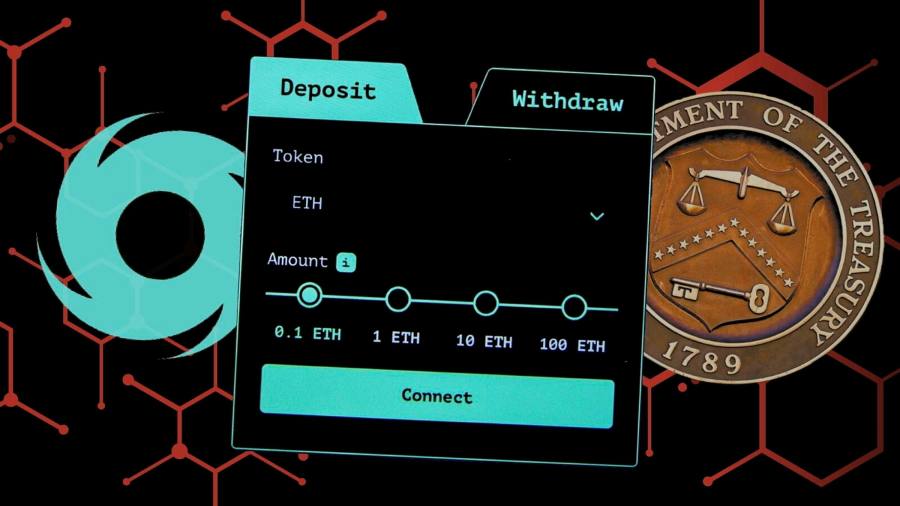US residents who have crypto stranded on Tornado Cash can now apply to the US Treasury Department for a license to retrieve their funds.
Tornado Cash, a cryptocurrency mixing service, was sanctioned by the US government on September 13. According to officials, US citizens who have assets put in the protocol can request specific authorization from the Office of Foreign Assets Control (OFAC) in order to retrieve their monies.
Using Code to Interact
Persons requesting a license must give precise information about prior Tornado Cash transactions, such as the wallet address, the date and time of the transaction, the total amount of crypto assets sent to Tornado Cash, and previous transaction hashes.
The announcement further states that, while interacting with the protocol’s core code is restricted by the penalties, transacting with Tornado Cash is not.
The Treasury Department stated that “U.S. people would not be prevented by US sanctions restrictions from copying the open-source code and making it available online for others to examine, as well as discussing, teaching about, or including open-source code in written publications.”
The agency also stated that the restrictions will not prevent US citizens from visiting the Tornado Cash website if it becomes operational again on the internet, nor will they prevent them from visiting the internet archives of the website.
On August 8, the US Treasury Department startled the cryptocurrency community by adding Tornado Cash to its list of Specially Designated Nationals. The move made it illegal for US citizens to deal with Tornado Cash wallets or contracts, and it was the first time OFAC included code on the SDN list.
Developers are being prosecuted.
The crypto community was outraged, claiming that code is speech and hence should be protected under the first amendment. Following that, the arrest of a Tornado Cash developer in the Netherlands revealed that authorities were taking action against developers who were working on the protocol’s code.
The lack of US involvement in the arrest, according to Jake Chervinsky, the head of policy at the Blockchain Association in Washington, suggests the incident was likely unrelated to Tornado Cash.
According to the Treasury Department’s comments, OFAC is not cracking down on open-source projects, but rather on money laundering the profits of cybercrime.
The Treasury Department also stated that OFAC is aware of allegations of unsolicited transactions using Tornado Cash to send tiny quantities of crypto assets to well-known wallets of celebrities and other famous figures.
It stated that, despite the fact that “legally, OFAC’s regulations would apply to these transactions,” it will not prioritize enforcement measures against such transactions if they do not violate additional sanctions in addition to Tornado Cash.

 English
English 简体中文
简体中文 繁體中文
繁體中文 Español
Español 日本語
日本語 한국어
한국어 ภาษาไทย
ภาษาไทย

